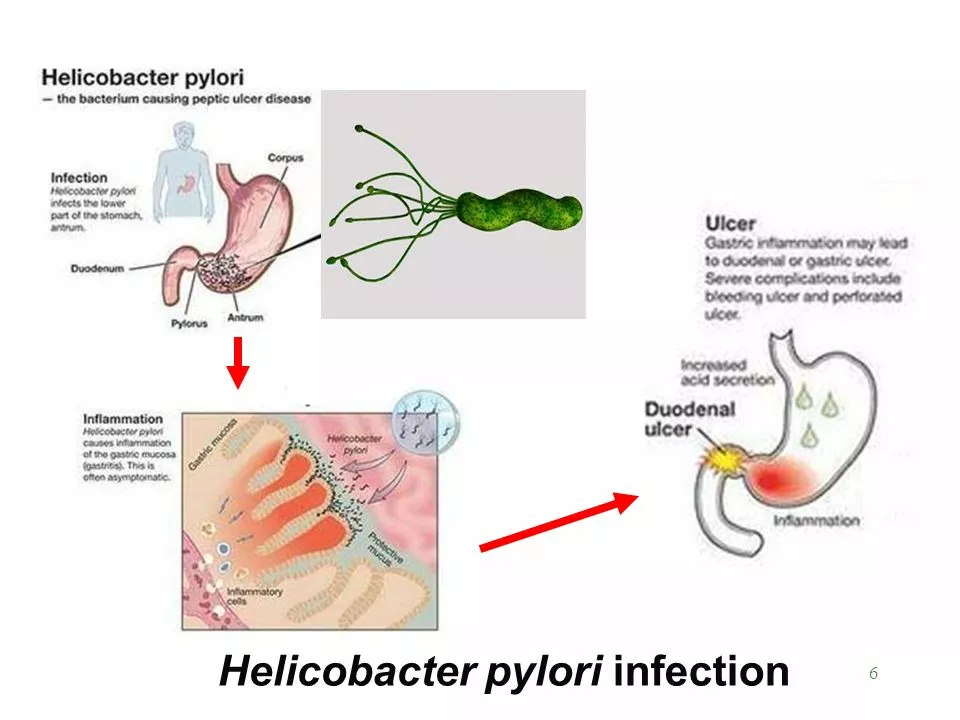Discovering the Connection: Ulcers and H. pylori Infection
For many years, ulcers were thought to be caused by stress, spicy foods, and other lifestyle factors. However, groundbreaking research in the 1980s revealed that a bacterium called Helicobacter pylori (H. pylori) is actually the primary cause of most ulcers. In this section, we'll delve into the fascinating history of how this connection was discovered and how it revolutionized the way ulcers are treated today.
The discovery of the link between ulcers and H. pylori infection was a major breakthrough in medical science. It all started when two Australian scientists, Barry Marshall and Robin Warren, noticed that many people with ulcers also had an H. pylori infection. In a series of experiments, they were able to prove that H. pylori was the main culprit behind most ulcers. This revelation changed the way doctors treat ulcers, as it shifted the focus from managing symptoms to targeting the underlying infection.
How H. pylori Causes Ulcers: Understanding the Mechanism
Now that we know that H. pylori is the primary cause of most ulcers, it's important to understand how this bacterium actually causes these painful sores to form in the stomach or small intestine. H. pylori has a unique ability to survive in the harsh acidic environment of the stomach by producing an enzyme called urease.
The urease enzyme neutralizes stomach acid in the immediate area around the bacteria, allowing them to burrow into the protective mucus lining of the stomach or small intestine. This process damages the mucus lining and exposes the underlying tissue to stomach acid, leading to the formation of ulcers. Additionally, H. pylori infection can cause inflammation in the stomach lining, further exacerbating ulcer development.
Recognizing the Symptoms: When to Suspect an H. pylori-related Ulcer
Ulcers caused by H. pylori infection can present with a variety of symptoms, some of which may be quite subtle. However, there are some classic signs that should raise suspicion of an H. pylori-related ulcer. The most common symptom is a burning or gnawing pain in the upper abdomen, which may be worse when the stomach is empty or at night. Other symptoms can include nausea, vomiting, bloating, loss of appetite, and unexplained weight loss.
If you are experiencing any of these symptoms, it's important to consult your healthcare provider for an evaluation. They can perform tests to determine whether H. pylori is the cause of your ulcer and recommend appropriate treatment.
Diagnosing H. pylori Infections: The Key to Effective Treatment
There are several methods available for diagnosing H. pylori infection, and each has its own advantages and disadvantages. Some of the most common tests include breath tests, blood tests, stool tests, and endoscopic biopsies. Your healthcare provider will determine which test is best for you based on your medical history, symptoms, and other factors.
Once a diagnosis has been made, your healthcare provider can prescribe the appropriate treatment to eliminate the H. pylori infection and promote healing of the ulcer. Treatment typically involves a combination of antibiotics and medications to reduce stomach acid production, such as proton pump inhibitors or H2 blockers.
Preventing H. pylori Infections: Tips for a Healthier Gut
While it's not always possible to prevent an H. pylori infection, there are some steps you can take to reduce your risk and promote a healthy gut environment. Good hygiene is crucial, as H. pylori can be transmitted through contaminated food, water, or utensils. Be sure to wash your hands thoroughly and frequently, especially before preparing or consuming food.
Eating a balanced diet rich in fruits, vegetables, and whole grains can also help maintain a healthy gut environment and reduce your risk of developing an ulcer. Additionally, avoiding excessive alcohol consumption and not smoking can lower your chances of H. pylori infection and promote overall gastrointestinal health.



Ed Mahoney on 13 May 2023, AT 13:31 PM
Wow, another miracle cure, thx science.